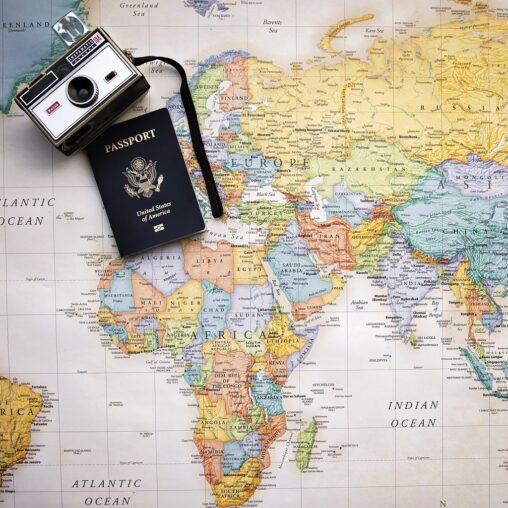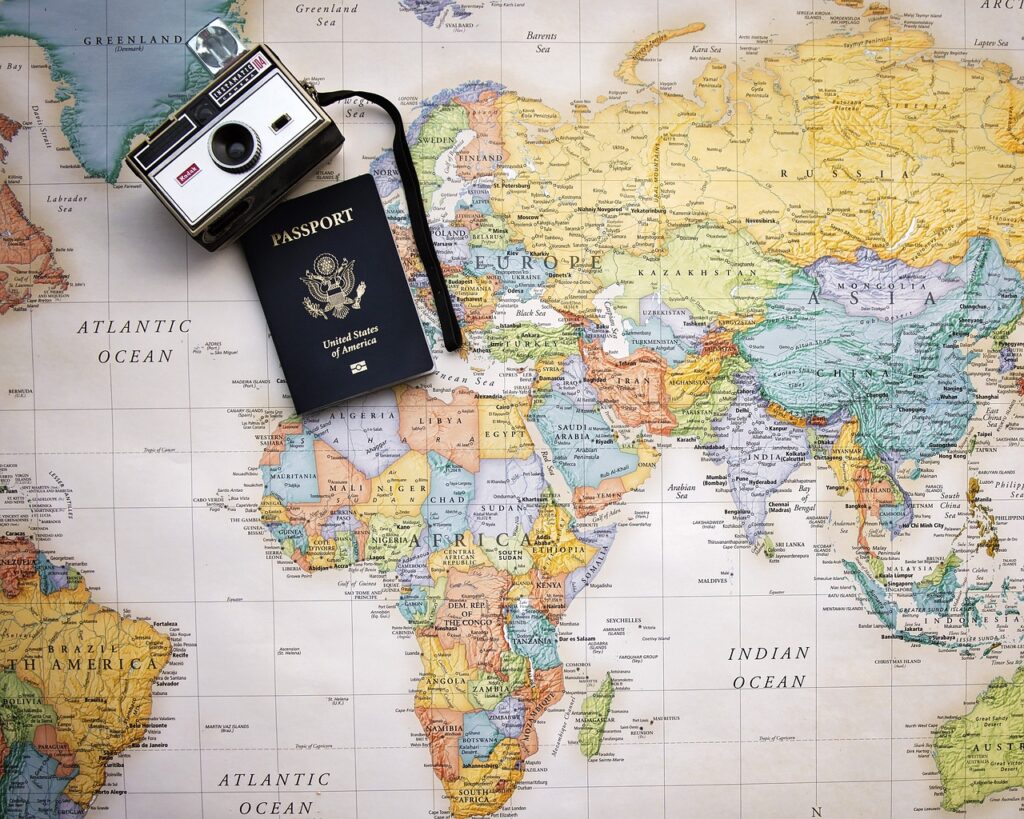The Biggest Mistakes Travelers Make When Planning a Vacation (And How to Avoid Them!)

Welcome, fellow wanderlust seekers! Planning a vacation is exciting, filled with dreams of amazing destinations and unforgettable adventures. However, common mistakes can ruin your trip. As a travel expert, I’ve seen many travelers make avoidable errors. In this post, I’ll share what not to do when planning a vacation. Grab a coffee, sit back, and let’s dive in!
Neglecting Proper Research when Planning a Vacation

Proper Research Is Essential When Planning a Vacation
Planning a vacation without research is like starting a journey without a map. Gathering details about climate, customs, transportation, and safety is crucial. Don’t assume everything will work out once you arrive. Proper research helps you make informed decisions and ensures a smooth experience.
Why Research Matters in Planning a Vacation
Skipping research can lead to missed opportunities, unnecessary stress, and unwanted surprises. Understanding your destination helps you avoid mistakes and enhances your trip. Let’s explore why thorough research is essential when planning a vacation.
Understanding Your Destination
Every place has unique charm, culture, and traditions. Research helps you understand local etiquette, customs, and societal norms. Learn about the language, currency, and transportation system to avoid confusion. This knowledge allows for a smoother experience and reduces frustration.
Discovering Must-See Attractions
Researching your destination helps you find must-see attractions and hidden gems. From famous landmarks to local secrets, knowing where to go ensures you maximize your time. Read travel guides, browse blogs, and get recommendations from other travelers. This way, you won’t miss out on experiences that match your interests.
Weather and Seasonal Considerations
Weather plays a big role in travel experiences. Researching climate patterns helps you pack the right clothing and plan outdoor activities. Knowing about festivals or seasonal events can also add special moments to your trip. Being prepared for weather conditions ensures a more comfortable vacation.
Safety Precautions when Planning a Vacation
Safety should always be a priority when planning a vacation. Research crime rates, travel advisories, and health concerns before you go. Stay updated with travel warnings and check government websites for advice. Take note of necessary vaccinations, emergency contacts, and travel insurance options. Being informed helps protect your well-being.
Immersing in Local Cuisine and Culture
Food and culture make travel more enriching. Researching local dishes helps you find authentic meals and understand dining customs. Learning cultural norms ensures respectful interactions with locals. A deeper cultural connection makes your experience more meaningful and enjoyable.
Final Thoughts on Researching Before Planning a Vacation
Skipping research is like traveling blindfolded. Understanding local customs, attractions, safety measures, and cultural experiences enhances your trip. Research provides confidence and ensures a stress-free vacation. Invest time in learning about your destination, and you’ll be well-prepared for an unforgettable journey!
Don’t Overlook Travel Insurance When Planning a Vacation
No one wants to think about worst-case scenarios when planning a vacation, but accidents happen. Skipping travel insurance can lead to unexpected expenses, cancellations, or medical emergencies. A solid policy protects your investment and provides peace of mind.
Why Travel Insurance Is More Important Than Ever
The COVID-19 pandemic highlighted the necessity of travel insurance. While always a smart choice, it’s now an essential safeguard. Let’s explore why it matters when planning a vacation in a post-COVID world.
Trip Cancellations and Interruptions
Even well-planned trips can face sudden disruptions. Travel restrictions, flight cancellations, or policy changes can affect your plans. Without insurance, you may lose non-refundable expenses like flights, hotels, or activities. A good policy can reimburse these costs, ensuring financial protection.
Medical Emergencies and Evacuations
Falling ill while traveling can lead to expensive medical bills. COVID-19 and other illnesses may require hospitalization or emergency evacuation. Travel insurance covers hospital stays, medical treatments, and transport back home. This ensures you get proper care without financial stress.
Delays and Missed Connections
Changing travel regulations have increased flight delays and missed connections. Whether due to cancellations, rescheduled flights, or extra COVID-19 testing, delays can be costly. Travel insurance can cover meals, lodging, and transportation during unexpected wait times.
COVID-19-Specific Coverage
Many policies now offer COVID-19 coverage. This can include medical expenses, cancellations due to a positive test, and quarantine costs. Always review your policy details to understand coverage limits and exclusions.
Final Thoughts on Travel Insurance When Planning a Vacation
Travel insurance is a must-have when planning a vacation. It protects against unexpected events, ensures financial security, and provides medical coverage. Investing in a good policy lets you explore the world with confidence.

Ignoring Your Budget When Planning a Vacation
One of the biggest travel mistakes is failing to set a realistic budget. Without clear financial limits, overspending becomes a real risk. Carefully calculate all potential expenses, including transportation, accommodations, meals, activities, and souvenirs. A well-planned budget helps you allocate funds wisely and avoid financial stress.
The Importance of Budgeting When Planning a Vacation
Budgeting plays a crucial role when planning a vacation. Ignoring it can lead to financial stress and post-trip regrets. Let’s explore why sticking to a budget ensures a worry-free and enjoyable trip.
Financial Peace of Mind
Traveling within budget provides security and peace of mind. You can enjoy your trip without stressing about money or debt. A realistic budget helps you understand spending limits and make informed choices. Allocating funds wisely allows for comfortable accommodations, meals, and activities.
Avoiding Post-Trip Regrets
Returning home to a pile of credit card bills can ruin vacation memories. Overspending leads to financial stress and regret. Sticking to a budget ensures you enjoy the trip without financial worries later. Responsible spending allows you to cherish memories without guilt.
Prioritizing Meaningful Experiences when Planning a Vacation
A budget helps you focus on what matters most. Allocating funds wisely ensures you can afford experiences that align with your interests. Splurging on a unique excursion or trying local cuisine becomes possible without financial strain. Smart choices maximize your vacation experience while protecting your finances.
Preparing for Unforeseen Expenses
Unexpected costs can arise during travel. Medical emergencies, lost baggage, or last-minute itinerary changes happen. Setting aside emergency funds prevents financial strain. Including travel insurance in your budget adds an extra layer of protection.
Maintaining Long-Term Financial Goals
Overspending on vacation can impact future financial plans. It may delay saving for a home, paying off debt, or investing. Sticking to a budget ensures you enjoy travel while maintaining financial stability.
Final Thoughts on Budgeting When Planning a Vacation
Ignoring your budget when planning a vacation leads to stress and financial strain. Setting a realistic budget allows for an enjoyable trip without regrets. Prioritize experiences, plan for unexpected expenses, and maintain financial balance.

Overpacking or Underpacking: Finding the Perfect Balance
Packing too much or too little can cause travel stress. Overpacking leads to heavy bags and baggage fees. Underpacking leaves you without essential items, forcing last-minute purchases. Striking the right balance ensures a smooth trip.
Why Packing Smart Matters when Planning a Vacation
Packing correctly makes travel easier. Too many items slow you down. Too few items create unnecessary problems. Planning ahead prevents these issues.
Essentials You Should Never Forget
Underpacking can leave you without important necessities. Consider the weather, trip duration, and planned activities. Always pack:
- Proper clothing for the climate
- Toiletries and medications
- Chargers and adapters
- Travel documents
Having these items ensures a comfortable trip.
Avoiding Excess Baggage Fees
Overpacking often results in extra luggage fees. Airlines have strict weight limits, and exceeding them costs money. Heavy bags also make travel tiring. Packing only essentials saves money and effort.
Enjoying More Flexibility While Traveling
Dragging heavy luggage can limit mobility. Navigating airports, cobblestone streets, or public transport becomes exhausting. Packing light makes moving around easier. You’ll have more energy for exploring.
Using Laundry Services and Local Shops
Many destinations offer laundry facilities. Overpacking becomes unnecessary if you can wash clothes during the trip. Local shops also provide toiletries or accessories if needed. Packing fewer clothes creates extra suitcase space.
Staying Organized with Efficient Packing when Planning a Vacation
Overpacking makes it hard to find items quickly. A cluttered suitcase adds frustration. Use packing cubes or compression bags for easy organization. This helps locate essentials without rummaging.
Final Thoughts on Overpacking or Underpacking
Packing too much or too little can cause problems. Plan outfits, check the weather, and bring essentials only. A well-packed suitcase ensures a stress-free and enjoyable trip.

Failing to Plan Ahead when Planning a Vacation
Spontaneity adds excitement, but failing to plan ahead can lead to missed opportunities. Without preparation, you may face higher costs and limited availability. Proper planning ensures a smooth and enjoyable trip.
Higher Costs and Limited Availability
Flights, hotels, and attractions fill up quickly, especially in peak seasons. Last-minute bookings often cost more. Planning ahead secures better prices and ensures availability. Booking in advance helps avoid disappointment and overspending.
Missing Out on Popular Attractions
Many top attractions require reservations. Tours, events, and dining experiences often sell out. Without planning, you might miss out on key experiences. Researching and booking in advance guarantees access to must-see spots.
Wasting Valuable Travel Time
Without a plan, managing time becomes difficult. Last-minute decisions can lead to confusion and delays. Creating an itinerary helps maximize your experience. Prioritizing activities ensures a balanced mix of adventure and relaxation.
Visa and Travel Document Issues
Some destinations require visas or special permits. Processing times vary, and last-minute applications risk delays. Checking passport validity and visa requirements early prevents unexpected trip cancellations.
Limited Access to Local Services
Transportation, tour guides, and special services may be fully booked. Last-minute planning limits your options. Securing local services in advance improves convenience and enhances your trip.
Final Thoughts on Failing to Plan Ahead
Failing to plan ahead leads to stress, missed experiences, and higher costs. Booking early and organizing details creates a stress-free journey. A well-planned trip ensures a memorable and enjoyable adventure.
Your Perfect Vacation Starts Here
Congratulations! You’ve reached the end of our What Not to Do When Planning a Vacation guide. By avoiding these mistakes, you’re on your way to a stress-free and unforgettable trip. Proper research, budgeting, efficient packing, and planning ahead ensure smooth and enjoyable travels.
Let Us Take Your Trip to the Next Level
Why stop here? Our expert travel planners can create the perfect itinerary tailored to your budget and preferences. Whether you dream of a beach escape, thrilling adventure, or cultural exploration, we’ve got you covered.
Stress-Free Planning with Expert Guidance
With our personalized service and trusted partners, we handle every detail. Flights, hotels, transportation, and activities—all arranged for a seamless experience. Our insider recommendations ensure you make the most of your trip.
Don’t forget to utilize these resources when planning a vacation:
- U.S. Department of State – Travel Advisories (https://travel.state.gov/content/travel/en/traveladvisories/traveladvisories.html) – Stay updated on travel warnings, visa requirements, and safety guidelines for your destination.
- Skyscanner – Flight Deals & Price Comparison (https://www.skyscanner.com/) – Compare flight prices and find the best airfare deals for your trip.
- World Nomads – Travel Insurance (https://www.worldnomads.com/) – Protect your vacation with comprehensive travel insurance for unexpected events.
- Lonely Planet – Destination Guides (https://www.lonelyplanet.com/) – Get expert travel insights, itineraries, and recommendations for your chosen destination.
- Packing List Generator – PackPoint (https://www.packpnt.com/) – Create a customized packing list based on your destination, weather, and activities.
These resources can help travelers plan effectively and avoid common mistakes when planning a vacation.
Start Planning Your Dream Vacation Today
Don’t let planning stress hold you back. Contact us today through our website or call [insert contact info] to begin your journey. Let’s turn your travel dreams into reality!
The World Is Waiting—Go Explore!
Life is short, and adventure awaits. Take that leap, explore new places, and let us be your trusted guide. Safe travels!
